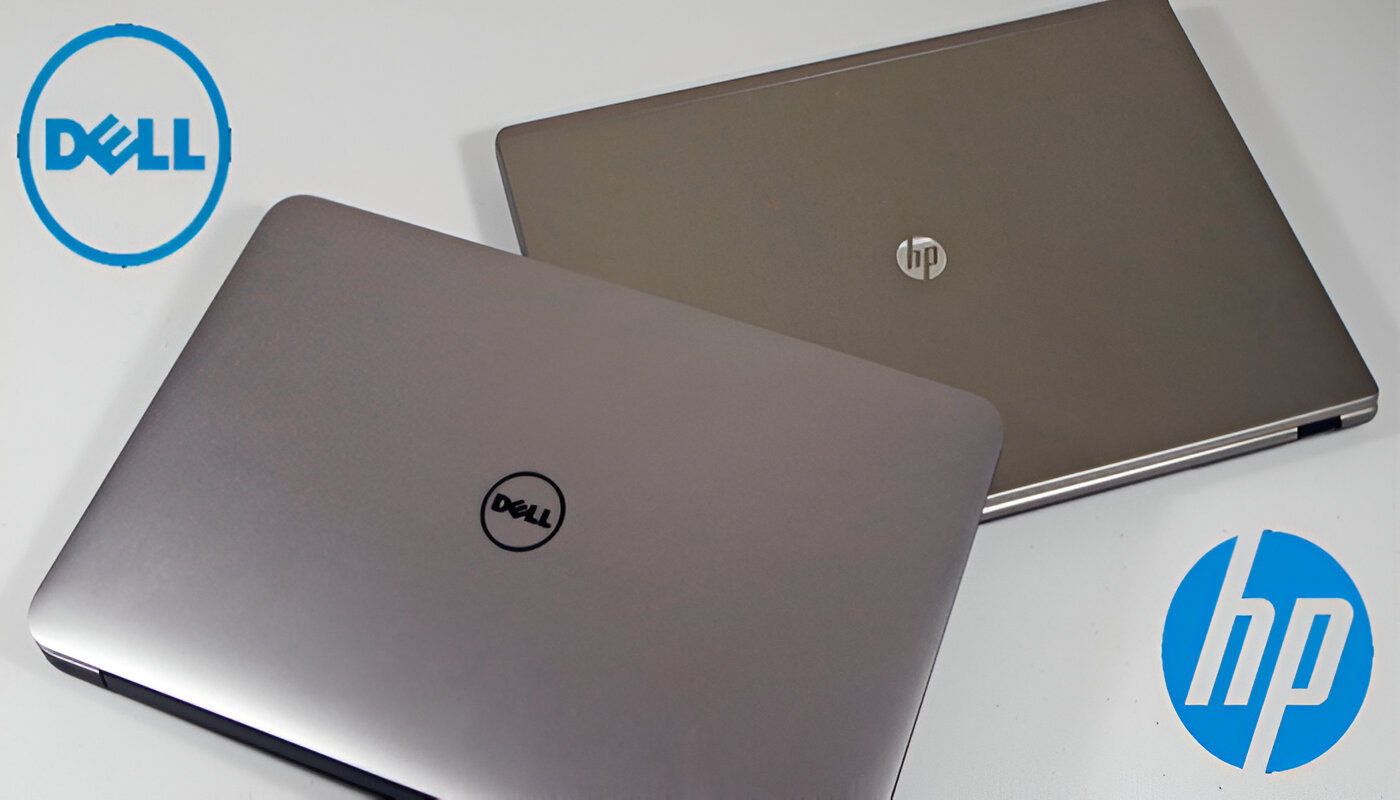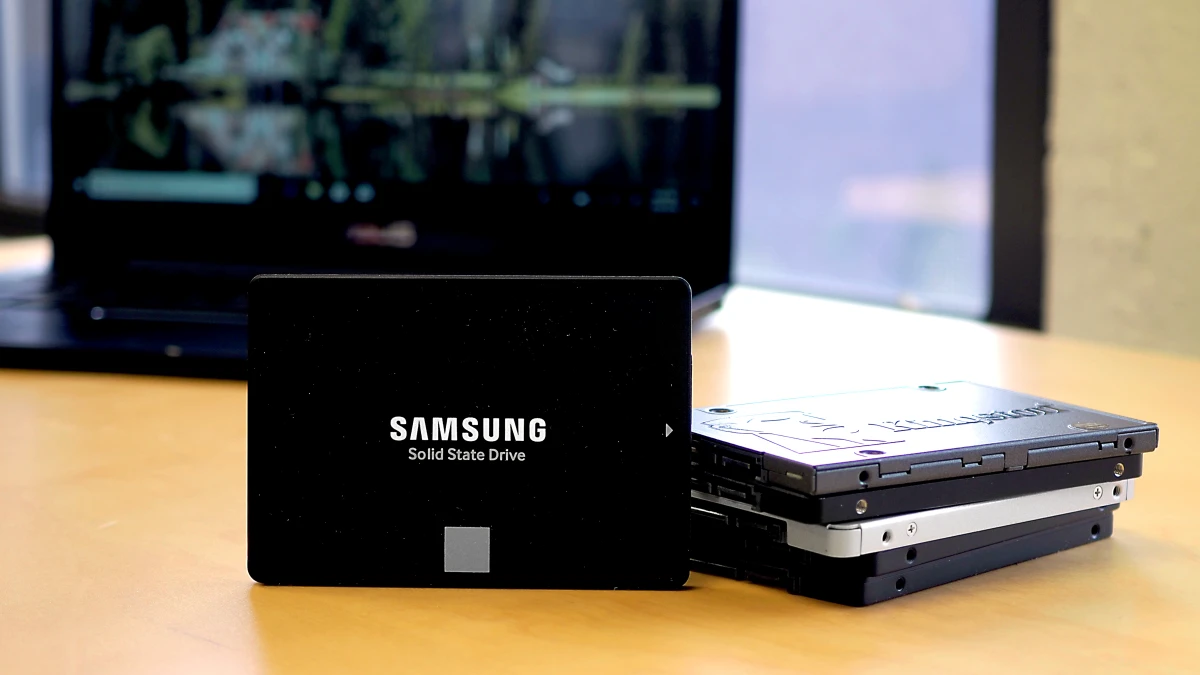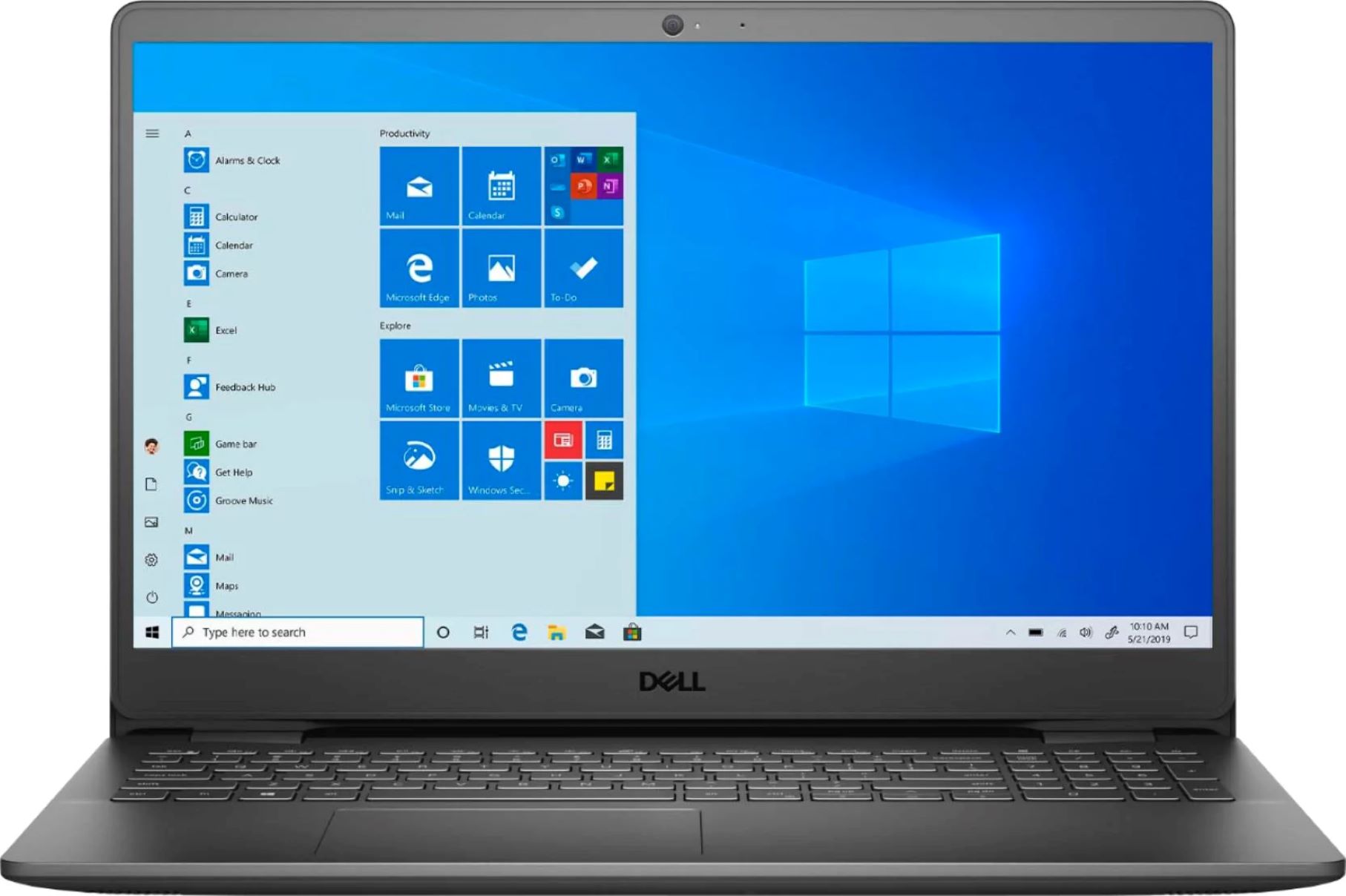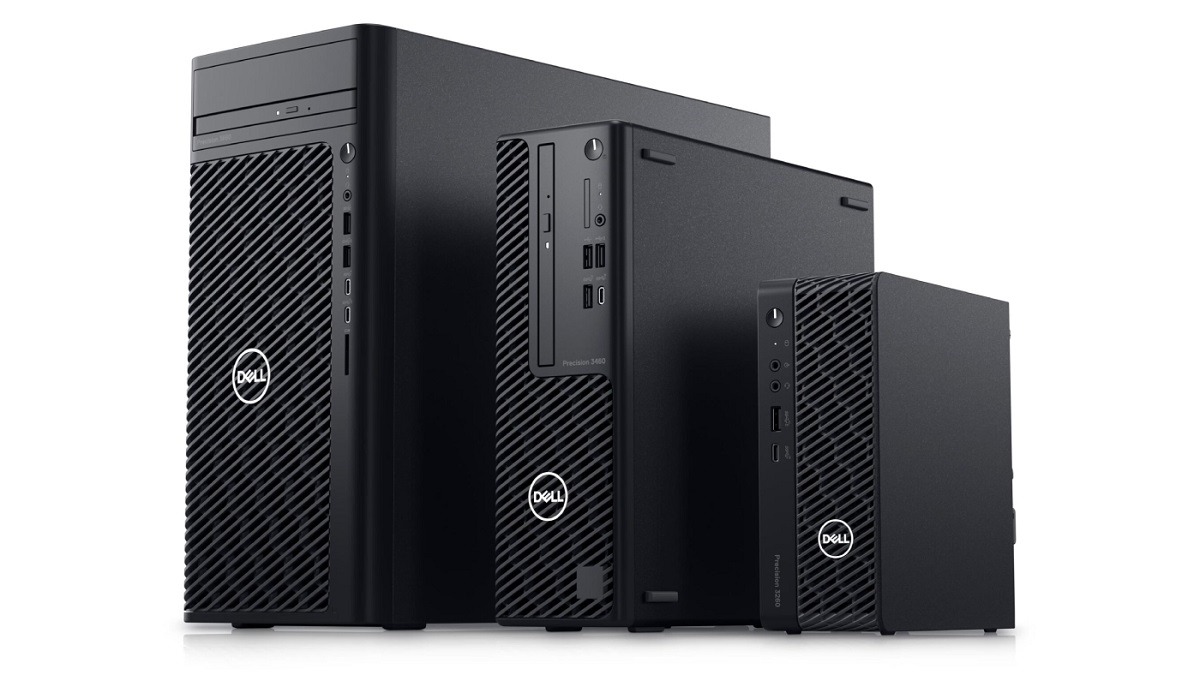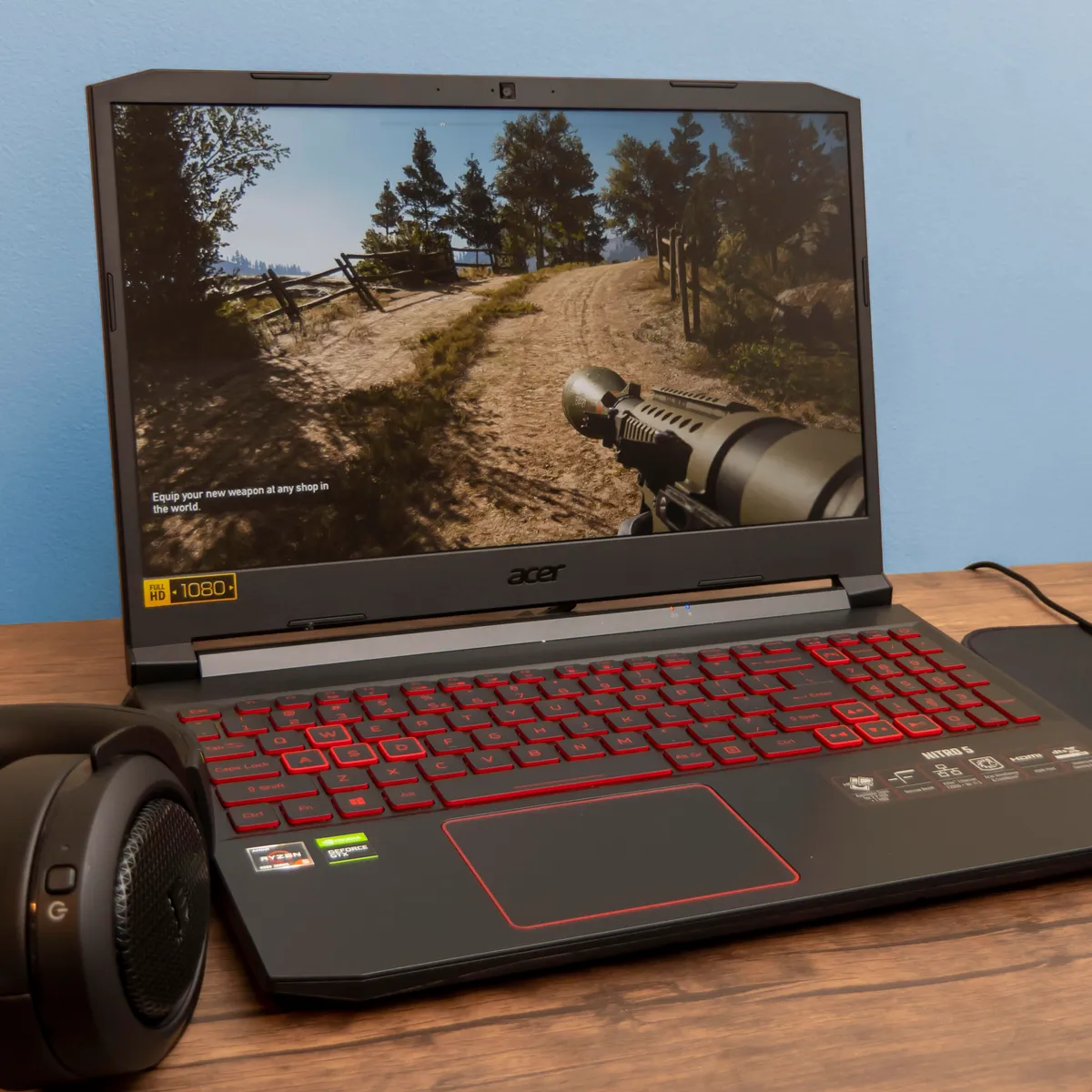Introduction
When it comes to choosing a laptop, two prominent brands that often come to mind are Dell and HP. Both companies have a long-standing reputation for producing quality devices that cater to different needs and preferences. Whether you’re a student, a professional, or a casual user, selecting the right laptop can significantly impact your productivity and overall computing experience.
Both Dell and HP offer a wide range of laptop models with varying specifications and features. It’s crucial to understand the key considerations and factors when deciding between these two renowned brands. In this article, we will compare Dell and HP laptops in terms of design, performance, operating system, battery life, display quality, keyboard, touchpad, audio, connectivity, price, and customer support.
A laptop’s design and build quality play a crucial role in its overall appeal and durability. Dell laptops are known for their sleek and modern designs, with attention to detail and premium materials. On the other hand, HP laptops provide a variety of design options, from sleek and professional look to more vibrant and stylish options.
Performance and specifications are critical aspects to consider when deciding between Dell and HP laptops. Dell offers a wide range of processor options, including Intel and AMD, providing excellent performance for various computing tasks. HP laptops also come with powerful processors and options for customization to meet specific requirements.
The choice between operating systems, Windows or macOS, is another significant consideration. Dell laptops mainly run on the Windows operating system, providing a wide range of software and compatibility options. HP laptops, on the other hand, offer a selection of both Windows and macOS, giving users the flexibility to choose according to their preferences.
Battery life is an essential aspect for those who work on the go or need their laptops to last for extended periods. Dell laptops often come with long-lasting batteries, ensuring that you can work without interruptions. HP laptops also provide efficient battery life, allowing you to accomplish your tasks on the move.
The display quality is another crucial factor to consider. Both Dell and HP laptops offer various display options, including full HD, 4K, and touchscreen. Dell laptops are renowned for their vivid and sharp displays, while HP laptops provide vibrant colors and excellent viewing angles.
The keyboard and touchpad are essential components that can significantly impact your typing and navigation experience. Dell laptops typically feature comfortable keyboards with well-spaced keys and responsive touchpads. HP laptops also offer excellent keyboard and touchpad quality, ensuring comfortable and accurate input.
Audio quality is often overlooked but can make a difference, especially for multimedia and entertainment purposes. Dell laptops usually provide impressive audio output and clear sound quality. HP laptops also deliver decent audio experience, enabling you to enjoy movies, music, and video calls with enhanced audio performance.
Connectivity and port availability are vital considerations for connecting peripherals and external devices. Dell laptops offer a wide range of connectivity options, including USB ports, HDMI, and card readers. HP laptops also provide multiple connectivity options, ensuring flexibility in connecting various devices.
Price and value for money is a significant aspect when choosing a laptop. Dell laptops are known for their competitive pricing and the value they offer in terms of performance and features. HP laptops also provide a range of options at different price points, catering to various budgets and requirements.
Last but not least, customer support and warranty can significantly impact your overall experience with a laptop. Dell has a reputation for providing excellent customer support and comprehensive warranties, ensuring peace of mind for its users. HP also offers reliable customer support and warranty options, ensuring prompt assistance in case of any issues or concerns.
By considering all the factors mentioned above, you can make an informed decision when choosing between Dell and HP laptops. Whether you prioritize design, performance, battery life, display quality, or other features, both Dell and HP offer options that cater to a wide range of needs and preferences.
Design and Build Quality
When it comes to design and build quality, both Dell and HP laptops have their unique offerings that cater to different aesthetic preferences and user requirements.
Dell laptops are known for their sleek and modern designs that appeal to professionals and style-conscious users. The Dell XPS series, for example, features a slim aluminum chassis, edge-to-edge display, and precision-crafted details that exude elegance and sophistication. Dell’s attention to detail is evident in the seamless integration of components and the use of premium materials, resulting in a visually appealing and durable laptop.
HP laptops, on the other hand, provide a range of design options to suit various preferences. Whether you’re looking for a sleek and professional look or a more vibrant and eye-catching design, HP offers models like the HP Spectre and HP Envy that cater to different styles. These laptops feature slim profiles, attractive color options, and high-quality finishes that add a touch of style to your computing experience.
In terms of build quality, both Dell and HP laptops are built to withstand daily use and offer durability. Dell laptops undergo rigorous testing to ensure they can withstand various environmental conditions and handle everyday bumps and knocks. HP laptops also go through extensive testing to meet quality standards and provide reliability to users.
Both brands prioritize the use of high-quality materials in their laptops’ construction. Dell often incorporates aluminum and carbon fiber in its designs, enhancing durability while keeping the devices lightweight. HP uses a combination of materials, such as aluminum, magnesium, and carbon fiber, to provide a sturdy and resilient build.
Furthermore, Dell and HP laptops pay attention to ergonomics and user comfort. Dell applies a user-centric approach to its design, incorporating comfortable keyboards with well-spaced keys and responsive touchpads that enhance productivity and reduce strain. HP laptops also offer comfortable typing experiences with well-designed keyboards and precision touchpads.
Overall, both Dell and HP laptops excel in design and build quality. Dell stands out with its sleek and modern aesthetics, precision craftsmanship, and premium materials. HP, on the other hand, offers a variety of design options to cater to different styles and preferences. Both brands prioritize durability and user comfort, ensuring that their laptops can withstand daily use while providing an enjoyable computing experience.
Performance and Specs
When it comes to performance and specifications, both Dell and HP laptops offer a range of options to suit different user requirements and computing needs.
Dell laptops are known for their excellent performance, thanks to their powerful processors and extensive customization options. Dell offers a variety of processor choices, including Intel Core i5, i7, and i9, as well as AMD Ryzen processors. These processors provide fast and efficient computing power, allowing users to handle demanding tasks such as multimedia editing, gaming, and complex calculations.
HP laptops also provide impressive performance capabilities with their selection of processors. From Intel Core i5 and i7 to AMD Ryzen processors, HP offers options for every task. Whether you’re a casual user or a professional, HP laptops deliver reliable performance for everyday productivity, entertainment, and multitasking.
In addition to processors, both Dell and HP laptops provide options for RAM and storage. Dell offers various configurations with different RAM capacities, ranging from 8GB to 32GB and beyond. This allows users to customize their laptops according to their specific needs, whether it’s for everyday multitasking or resource-intensive tasks.
HP laptops also offer a range of RAM options, allowing users to choose the amount of memory that suits their requirements. From 8GB to 16GB or more, HP laptops provide ample memory for smooth multitasking and efficient performance.
When it comes to storage, Dell and HP laptops offer various choices, including traditional hard drives (HDDs) and solid-state drives (SSDs). SSDs are known for their faster read and write speeds, which significantly improve overall system performance. Dell and HP both offer SSD options, allowing users to experience faster boot times, quicker application launches, and smoother data transfers.
In terms of graphics capabilities, both Dell and HP laptops provide options to cater to different graphics needs. Dell laptops often feature dedicated graphics cards from NVIDIA or AMD, providing impressive graphics performance for gaming, design work, and video editing. HP laptops also offer dedicated graphics options, ensuring smooth visuals and enhanced performance for multimedia and gaming purposes.
Overall, Dell and HP laptops provide excellent performance due to their powerful processors, ample RAM, and storage options. Whether you need a laptop for everyday productivity, creative work, or gaming, both brands offer a wide range of configurations to cater to your specific requirements.
Operating System and Software
When it comes to the operating system (OS) and software, Dell and HP laptops offer different options to cater to various user preferences and requirements.
Dell laptops primarily run on the Windows operating system, providing users with a familiar and widely-used platform. Windows offers a vast range of compatible software and applications, making it suitable for a wide range of tasks and purposes. Users can benefit from the extensive software support, including productivity tools, creative software, gaming applications, and more.
HP laptops, on the other hand, provide users with a choice between Windows and macOS. Windows, as mentioned above, provides flexibility and compatibility with various software options. macOS, on the other hand, is exclusive to Apple devices and offers a seamless and intuitive user experience. It is known for its smooth performance, security features, and optimized compatibility with Apple’s own software, such as Final Cut Pro X and Logic Pro X.
Both Dell and HP laptops come with pre-installed software and applications to enhance the user experience. Dell laptops often include utilities for system maintenance, security, and device management. They also provide software for multimedia playback, productivity, and collaboration.
HP laptops also come with pre-installed software, including HP Support Assistant, which helps users keep their laptops up to date and troubleshoot any issues. Additionally, HP often includes additional software that enhances the multimedia experience, such as audio enhancement tools and media creation applications.
Furthermore, Dell and HP laptops offer options for additional software and applications, allowing users to customize their devices further. Both brands have their respective app stores or software repositories, where users can browse and download a variety of applications, ranging from productivity tools to entertainment apps.
When choosing between Dell and HP laptops, considering the operating system and software is important as it affects the user experience and compatibility with specific tasks. If you have a preference for a particular OS, such as Windows or macOS, or have specific software requirements, it’s essential to choose a laptop that aligns with your needs.
Battery Life
Battery life is a crucial consideration when it comes to choosing a laptop, especially for users who are constantly on the go or need to work for extended periods without access to a power source. Dell and HP laptops offer different battery technologies and optimizations to ensure efficient power management and longer battery life.
Dell laptops are known for their impressive battery life, thanks to the integration of advanced battery technologies and power-saving features. Dell utilizes technologies like Intel’s power-efficient processors, advanced battery cell configurations, and intelligent power management systems. This combination allows Dell laptops to deliver exceptional battery life, ensuring that you can work, stream, or browse without the need for frequent recharging.
HP laptops also provide efficient battery life, allowing users to stay productive throughout the day. HP employs various power management techniques, such as optimizing resource usage, fine-tuning hardware components, and implementing power-saving features in their laptops. Additionally, HP laptops often come with quick-charging capabilities, enabling you to recharge your device rapidly when needed.
It’s important to note that the actual battery life of a laptop can vary depending on several factors, such as the specific model, screen brightness, task load, and usage patterns. Typically, both Dell and HP laptops offer battery life that can range from several hours to a full day, depending on the usage and configuration.
When comparing battery life between Dell and HP laptops, it’s essential to consider specific models and their specifications. Different laptop models from each brand may have varying battery capacities and optimizations, which can impact the overall battery performance.
In general, Dell and HP laptops excel in providing efficient battery life, allowing users to accomplish their tasks without being tethered to a power outlet. Whether you’re working on documents, streaming multimedia content, or attending online meetings, both Dell and HP laptops offer sufficient battery life to keep you productive throughout the day.
Display Quality
The display quality of a laptop plays a vital role in providing an immersive and visually pleasing user experience. Dell and HP laptops offer a range of display options to cater to different needs and preferences, ensuring vibrant colors, sharp visuals, and accurate representation of content.
Dell laptops are known for their exceptional display quality. The company incorporates high-resolution screens with options for full HD, 4K Ultra HD, and even OLED displays in some models. These displays offer stunning clarity, vibrant colors, and excellent color accuracy, making them ideal for creative professionals, multimedia enthusiasts, and anyone who values a visually captivating experience. Dell’s display panels also commonly feature anti-glare coatings, which reduce reflections and improve readability in bright lighting conditions.
HP laptops also deliver impressive display quality. With options for full HD, 4K, and touchscreens, HP laptops offer sharp and detailed visuals. HP’s displays often provide vivid color reproduction and wide viewing angles, ensuring that the content displayed appears true to life from various perspectives. Additionally, some HP models come with technologies like HP Sure View, which enhances privacy by reducing side-angle viewing, making it harder for others to see your screen.
Both Dell and HP laptops utilize LED-backlit display technology, which offers energy efficiency and enables thinner and lighter laptop designs without compromising on visual quality. This technology ensures vibrant colors, high contrast ratios, and consistent brightness across the display.
It’s worth mentioning that different laptop models within each brand may offer a range of display options, so it’s essential to consider the specific model and its specifications when comparing display quality. Higher-end models from both Dell and HP often provide better display features, such as higher resolutions and wider color gamuts.
Ultimately, whether you choose a Dell or HP laptop, you can expect impressive display quality that enhances your overall computing experience. Both brands prioritize delivering sharp, vibrant, and accurate displays, making them suitable for various tasks, such as multimedia consumption, content creation, and everyday productivity.
Keyboard and Touchpad
The keyboard and touchpad are critical components of a laptop that greatly influence the user’s typing and navigation experience. Both Dell and HP laptops prioritize the design and functionality of these input devices to ensure comfortable and accurate usage.
Dell laptops are known for their well-designed keyboards that offer a pleasant typing experience. The keyboards typically feature well-spaced keys with comfortable key travel, allowing for smooth and accurate typing. Dell also pays attention to the layout and placement of keys, ensuring a familiar and ergonomic design. Backlit keyboards are also available in many Dell laptop models, enabling users to work in low-light environments with ease.
HP laptops also feature keyboards that are designed for comfort and efficiency. The keyboards provide a good amount of key travel and feedback, contributing to a satisfying typing experience. HP pays attention to key placement and size, ensuring that users can easily reach and type on the keys without discomfort. Additionally, HP offers backlit keyboards in select models, allowing users to work efficiently in dimly lit environments.
In terms of the touchpad, both Dell and HP laptops offer responsive and accurate touchpad functionalities. Dell laptops generally come with large and smooth touchpads that support multi-touch gestures and precision movements. The touchpads are designed to provide precise cursor control, making navigation effortless and precise.
HP laptops also feature touchpads that offer smooth and accurate tracking. HP touchpads support multi-touch gestures, allowing users to perform various functions with simple finger movements. The touchpads are well-integrated into the design and provide intuitive navigation, enhancing the overall user experience.
Additionally, both Dell and HP laptops offer customization options for the touchpad settings. You can adjust the sensitivity, gestures, and scrolling behavior to suit your personal preferences and usage habits.
When choosing between Dell and HP laptops, it’s worth noting that personal preference plays a significant role in selecting the keyboard and touchpad design. Some users may prefer the feel and layout of one brand’s keyboard over the other. It’s recommended to try out the keyboards and touchpads of different laptop models to determine which one feels most comfortable and suitable for your needs.
Overall, both Dell and HP laptops provide well-designed keyboards and responsive touchpads that enhance the typing and navigation experience. Depending on personal preference, you can find a laptop from either brand that offers a comfortable and efficient input experience for your daily tasks.
Audio and Speakers
Audio quality is an often overlooked but significant aspect of a laptop that can greatly enhance the multimedia and entertainment experience. Both Dell and HP laptops strive to provide a satisfying audio experience through their speaker systems and audio technologies.
Dell laptops are known for their impressive audio output, delivering clear and immersive sound. Dell incorporates advanced audio technologies such as Waves MaxxAudio Pro, which enhances the audio quality by fine-tuning and optimizing sound settings. This technology provides a balanced audio profile that enhances clarity, depth, and richness of sound, making it ideal for multimedia consumption, gaming, and video calls.
In addition to software enhancements, Dell laptops often include high-quality speakers that produce accurate and balanced sound. The placement of the speakers is carefully considered to provide an optimal audio experience, whether you’re listening to music or watching movies. Some Dell laptop models even feature premium speaker technology, such as those developed in collaboration with audio specialists like Waves or Bang & Olufsen.
HP laptops also offer excellent audio and speaker systems that provide a satisfying audio experience. HP integrates audio technologies like Bang & Olufsen or HP Audio Boost to enhance the overall sound quality. These technologies provide immersive sound, with clear vocals, vibrant tones, and deep bass that elevate your multimedia experience.
HP laptops are designed with high-quality speakers that deliver powerful and rich sound. The placement of the speakers is optimized to provide optimal audio output, whether you’re using your laptop on a desk or lap. Some HP laptop models also include dual speakers or additional speaker chambers, which further improve audio quality and stereo separation for an immersive audio experience.
Both Dell and HP laptops provide headphone jacks for connecting external audio devices, such as headphones or speakers. This allows users to enjoy personalized audio experiences or connect to external speakers for enhanced sound quality.
It’s important to note that while both Dell and HP laptops offer excellent audio, the specific audio output can vary between different laptop models. It’s recommended to consider the specific model’s audio features and read reviews to get a better understanding of its audio performance.
Overall, Dell and HP laptops prioritize delivering satisfactory audio experiences through their speaker systems and audio technologies. Whether you’re an entertainment enthusiast or a professional who values high-quality sound, both brands offer options that can enhance your multimedia experience and make your content come to life.
Connectivity and Ports
Connectivity and ports are essential aspects to consider when choosing a laptop, as they determine the device’s ability to connect to various peripherals and external devices. Both Dell and HP laptops offer a range of connectivity options to ensure flexibility and convenience for users.
Dell laptops provide a comprehensive set of connectivity options, allowing you to connect to a wide range of devices. Most Dell models offer multiple USB ports, including USB 3.0 and USB Type-C, which support fast data transfer speeds and device charging. Dell laptops also commonly feature HDMI ports, allowing you to connect to external displays or projectors. Additionally, Dell laptops often come equipped with card readers, headphone jacks, Ethernet ports, and, in some models, Thunderbolt ports for high-speed data transfer.
HP laptops also offer a variety of connectivity options to cater to different needs and preferences. HP typically provides multiple USB ports, including USB 3.0 and USB Type-C, for connecting peripherals and accessories. HDMI ports are commonly found on HP laptops as well, enabling you to connect to external displays or projectors. In addition, HP laptops often include headphone jacks, Ethernet ports, and card readers. Some HP models may also feature specialized ports, such as DisplayPort for connecting to specific monitors.
Both Dell and HP laptops support wireless connectivity options, including Wi-Fi and Bluetooth. These features enable you to connect to wireless networks, transfer files wirelessly, and connect to Bluetooth-enabled devices such as headphones, speakers, and mice. Dell and HP laptops typically integrate the latest Wi-Fi and Bluetooth technologies to ensure reliable and fast connections.
It’s important to consider the specific connectivity requirements you have when choosing between Dell and HP laptops. If you frequently work with external displays or need to connect to specific peripherals, it is recommended to check the available ports and their compatibility with your devices. Additionally, consider the type and number of USB ports you require for connecting accessories and storage devices.
Another aspect to consider is the availability of expansion options. Some Dell and HP laptop models allow for RAM upgrade and storage expansion, allowing you to customize and enhance your laptop’s capabilities as your needs evolve.
In summary, both Dell and HP laptops offer a range of connectivity options to cater to different user requirements. Whether you need multiple USB ports, HDMI connectivity, or support for wireless connections, both brands provide solutions that ensure seamless integration with your devices and enhance your overall laptop experience.
Price and Value for Money
Price and value for money are important factors to consider when purchasing a laptop, as they determine the affordability and overall worth of the device. Both Dell and HP laptops offer a range of models at various price points, allowing users to find options that fit their budget and provide excellent value.
Dell laptops are known for their competitive pricing, offering a range of models that cater to different needs and budgets. Dell strives to provide value for money by incorporating high-quality components and features into their laptops at reasonable price points. Whether you’re a student, a professional, or a casual user, Dell offers options that deliver reliable performance, durability, and functionality without breaking the bank.
HP laptops also provide options at various price points, ensuring there’s something available for every budget. HP focuses on delivering value through their laptops by offering a balance between performance, design, and affordability. Whether you need a budget-friendly laptop for basic tasks or a high-performance machine for demanding workloads, HP has models that offer solid performance and features at a competitive price.
When comparing prices between Dell and HP laptops, it’s important to consider the specifications, build quality, and additional features offered by each model. Higher-end models from both brands will naturally come with a higher price tag due to their more powerful processors, larger storage capacities, and advanced features.
In addition to the initial purchase price, it’s also important to consider the long-term value for money. Dell and HP provide warranty options to protect your investment and offer customer support to address any issues or concerns that may arise. It’s worth noting that the duration and coverage of warranties can vary between models and regions, so it’s advisable to review the warranty details before making a purchase.
Overall, Dell and HP laptops offer competitive pricing and value for money. Whether you’re looking for a budget-friendly option or a high-performance machine, both brands provide options that deliver reliable performance, durability, and features at different price ranges.
Customer Support and Warranty
Customer support and warranty are significant considerations when purchasing a laptop, as they ensure peace of mind and assistance in case of any issues or concerns. Both Dell and HP prioritize providing reliable customer support and comprehensive warranty options to enhance the overall ownership experience.
Dell is well-regarded for its exceptional customer support. They offer various channels for customer assistance, including phone support, online chat, and a knowledge base filled with helpful articles and troubleshooting guides. Dell’s customer support representatives are known for their expertise and professionalism, providing prompt and efficient assistance to address any questions or concerns that users may have. Additionally, Dell laptops typically come with comprehensive warranty options, ranging from one to three years, ensuring that users are covered in case of hardware malfunctions or defects.
HP also places great emphasis on customer support. They provide a comprehensive support website with troubleshooting resources, software downloads, and a community forum where users can seek solutions to common issues. HP offers phone support and live chat options to provide personalized assistance to customers. HP laptops typically come with warranty options that vary in duration, ranging from one to three years, depending on the model and region. This warranty coverage ensures that users have the necessary support and assistance should their laptop encounter any hardware problems.
It’s worth noting that customer support and warranty coverage can vary between different regions and models. It’s advisable to review the specific warranty details of the laptop model you’re interested in, including the duration, coverage, and any additional options for extended warranty.
Furthermore, both Dell and HP offer additional support services, such as on-site repairs or extended warranty packages, which provide users with additional convenience and peace of mind for an extended period.
When considering customer support and warranty, it’s essential to assess your own preferences and the level of support you may require. Reading reviews and engaging with user communities can provide insights into the customer support experiences of Dell and HP laptop owners, helping you make an informed decision.
Overall, Dell and HP are committed to providing reliable customer support and comprehensive warranty options, ensuring that users can rely on their laptops with confidence and receive timely assistance whenever needed.
Conclusion
When considering Dell and HP laptops, it’s clear that both brands offer a wide range of options to suit different preferences, needs, and budgets. Whether you prioritize design, performance, battery life, display quality, keyboard and touchpad experience, audio quality, connectivity, or customer support, Dell and HP have models that cater to your requirements.
Dell laptops stand out with their sleek and modern designs, premium build quality, and attention to detail. They provide excellent performance, customizable specifications, and impressive battery life. Dell laptops also offer exceptional display quality and comfortable keyboards and touchpads. Additionally, Dell is renowned for its competitive pricing and comprehensive customer support and warranty options.
HP laptops, on the other hand, offer a variety of design options, catering to different styles and preferences. They provide reliable performance, solid build quality, and efficient battery life. HP laptops offer impressive display quality, comfortable keyboards and touchpads, and enhanced audio experiences. HP also provides competitive pricing and reliable customer support and warranty options.
Ultimately, the choice between Dell and HP laptops comes down to personal preferences and individual needs. It’s important to consider factors such as design, performance, battery life, display quality, keyboard and touchpad experience, audio quality, connectivity, price, and customer support when making your decision.
Whether you’re a student, a professional, or a casual user, both Dell and HP laptops offer options that can fulfill your computing requirements. It’s recommended to research specific models, compare their features, read user reviews, and visit retail stores to experience the laptops in person before making your final decision.
By carefully evaluating your needs and considering the strengths of each brand, you can confidently select a Dell or HP laptop that provides a reliable, efficient, and enjoyable computing experience for years to come.







